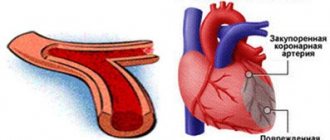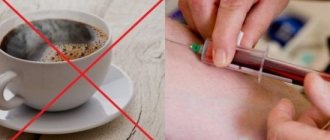What drugs can a blood test detect and when?
It is advisable to take a blood test for drugs within 7 days after the alleged use of a psychoactive substance. After this period, you can not count on a reliable result. However, many drugs are not detected in the blood even after a shorter period of time.
A blood test determines:
- Opioids (heroin, codeine, morphine);
- Barbiturates (barbamyl, phenobarbital);
- Stimulants (cocaine, amphetamine, methamphetamine);
- Cannabis preparations;
- Hallucinogens (LSD, mescaline).
The blood test only gives accurate results if it is done in a timely manner. But due to the fact that the time of elimination of toxic substances can vary depending on many factors, sometimes it is not possible to detect the drug in the blood, even if the person has used it.
Detoxification at home
Easy detoxification can be done at home. However, it is worth considering that we are not talking about self-medication for drug addiction, but rather about cleansing the body of toxins after a one-time drug use or about additional therapy when undergoing a course of drug detoxification in a clinic.
In this case, detoxification is carried out using home remedies, but its essence does not change. Firstly, this is an increase in diuresis by drinking large amounts of liquid (plain water, mineral water without gas), green tea, herbal diuretic teas. It is also important to normalize the acid-base balance of the body; this is done through a diet in which vegetables and fruits predominate. Adsorbents are also used to cleanse the body: regular activated carbon, Enterosgel and similar preparations.
Time frame for removing drugs from the body
The length of time the drug remains in the blood varies depending on the specific substance taken, the health status of the person who used it, and the individual characteristics of the body. Approximate dates are:
- Fen (amphetamine) stays in the blood for 2 days with a single dose. If a person uses regularly, this time increases to 7 days.
- Ecstasy - 3 days.
- Cocaine - 3 days for single use and 10 days for repeated use.
- Barbiturates can be detected within 1–7 days.
- Heroin is detected within 8 days (with regular use).
- Methadone - 5–7 days.
- Marijuana can be detected within 4 days with short-term occasional use and up to 1.5 months with long-term frequent smoking.
- Spice - 3–5 days. Since Spice is a synthetic drug and can have a different composition, it is not possible to name the exact time of its elimination.
- Salts - 3-4 days. This period is also very approximate, because Salts may contain various active ingredients.

Working with a psychotherapist
If a person is suspected of occasional drug use , then the problem can be solved without the use of rapid tests and other methods of drug analysis. In such cases, it is recommended to contact a psychotherapist at a drug treatment clinic, who will organize a conversation with a person who is at the first stage of addiction development. During the conversation, the doctor will find out the reason for his patient’s negative addiction to mental stimulants and will do everything possible to convince the patient to stop using drugs .
If the patient does not admit the fact of drug use, the psychotherapist will try to persuade him to take the test and dispel all doubts.
What contributes to the retention of drugs in the body?
The following factors contribute to the retention of psychoactive substances in the body:
- Weight. The same dosage of a drug has different effects on people with different body weights. Therefore, the concentration of the substance in people with low weight will be higher. However, in obese people the analysis will take much longer to detect the presence of the drug. This is due to the fact that drugs are retained mainly in adipose tissue, so if you are overweight, a blood or urine test will be positive for a longer period.
- Regularity of intake. The longer a person uses a toxic substance, the more difficult it is to remove it from the body, as it accumulates in the tissues.
- Dosage. The higher the dose of the drug taken, the longer it takes to eliminate it from the body.
- Health status. If the kidneys, liver and immune system are in good condition, drugs are eliminated from the body faster. But people who have been using psychoactive substances regularly for a long time do not have good health.
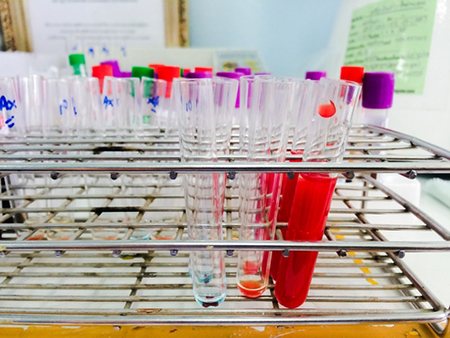
Signs of psychotropic use
Drug tests are prescribed in cases where there is specific suspicion that a person is using, even occasionally, illegal drugs. Today, early diagnosis of addiction is available to everyone . But you shouldn’t express distrust of people without good reason. Therefore, you need to know the signs of drug addiction before asking a person to take a drug test.
The main signs of dependence on psychostimulants include:
- dramatic changes in behavior. This could be long-term depression, strange, unfounded mood changes, loss of interest in everyday activities, an excited state, a change in social circles;
- attacks of severe hunger or loss of appetite, excessive thirst, daytime sleepiness or wakefulness for a day or more;
- inclusion in colloquial speech of words specific to drug addicts that are difficult to understand for ordinary people;
- regular lies, secrecy;
- loss of family money, valuables, increased personal spending.
These are only behavioral signs that may indicate a person's addiction to drugs. Moreover, it would be wrong to draw conclusions based on one of them . Therefore, before accusing someone of using psychoactive substances, try to simply have a heart-to-heart talk with him and find out the reason for the change in his character and previous life values. But if your suspicions are justified, drug tests will allow you to accurately determine the fact of drug addiction and begin treatment for addiction in a timely manner.
The drug clinic offers to do an anonymous drug test using express methods, as well as laboratory tests. The cost of the examination is available to all categories of the population. Call our consultants and we will tell you in detail about the center’s services, tariffs for services and methods of treating drug addiction.
Types of blood drug tests
There are 2 options for determining drugs in the blood:
The quarterly test is the most accurate method and shows whether a person was using drugs up to 4.5 months ago. Using this method, it is possible to establish the fact of the use of cannabinoids, opiates, barbiturates, cocaine, etc. Although the substance itself is no longer in the blood after a few days, the study identifies antibodies to drugs that are formed with regular use. If a person uses drugs, his body produces antigens to which antibodies are produced, which are detected during quarterly testing.
The disadvantage of the quarterly method is that it cannot be used to establish the fact of anesthesia directly at the time of diagnosis, since the formation of antibodies takes some time. This test will also not detect a single use of the drug. But in most cases, a quarterly test is the best option, so it is used quite often, despite the high cost and complexity of implementation. You can find out the results in 2–10 days.
Chemical-toxicological analysis detects drugs if no more than 3 days have passed after taking them. The study determines the type, and in some cases the concentration, of the toxic substance. Waiting for results may take up to 10 days. This method is not as accurate as the quarterly test, but due to its lower cost and ease of implementation, it is more common. The results of chemical toxicological analysis can be used as evidence in court.
Types and stages of testing
Testing takes place in two stages.
The first is rapid testing, the second is confirmatory methods. The second part is almost impossible to deceive. But they will start it only if the rapid test gives a positive result. What types of drug tests are there:
- Express test. Convenient rapid drug tests are sold in pharmacies and do not require much time - they can test your urine in just 15-20 minutes. The express test looks like wide plates or long strips with indicators - strips are usually designed to test 1-5 types of substances, plates - 10-15 types. They are coated with reagents that become colored upon contact with certain types of surfactants. Rapid tests do not detect modern designer drugs - spices and salts. Immunochromatographic tests are used for rapid testing. They identify both the substance itself and its metabolites. But their versatility is their Achilles heel. They react to specific groups, not to the substance as a whole.
- Research in a chemical-toxicological laboratory. A reliable testing method, carried out on special electronic equipment. There are several types of drug tests: saliva, blood, hair and urine tests. It is almost impossible to deceive the HTI analysis. It can identify any type of psychotropic substance - even unstudied designer drugs - as well as the time and dosage of use.
Rules for collecting blood for drug testing
Drawing blood to test for drugs or drug antibodies is a medical procedure that must be performed in a laboratory setting. The material is collected by a physician using special equipment and containers for transporting blood.
The analysis of venous blood is more informative, so in most cases it is used. If the procedure and subsequent laboratory testing are carried out correctly, a blood test for drugs is highly reliable.
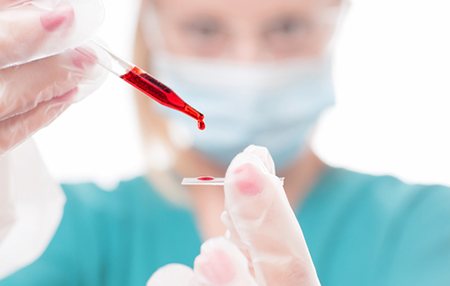
Chemical-toxicological blood test
A chemical-toxicological blood test is a laboratory test. It shows traces of drugs in the body, but extremely rarely shows the concentration of surfactants. The analysis will be effective if no more than 72 hours have passed since the drug was used; later this study will not detect it.
This test is convenient because it can be taken not only in a clinic; a doctor can test employees at the workplace. The process of collecting blood is simple; it is taken from a superficial vein by gravity or using a vacuum tube. In this case, it is important to observe the sterility of the process, the technology of packaging, storage and transportation of biological material.
Ways to remove drugs from the body
The rate at which drugs are eliminated is influenced by a person's health status. The work of the kidneys, liver, lymphatic and endocrine systems is especially important. The better the internal organs perform their functions, the faster various toxins, including drugs, leave the body.
It is advisable to cleanse the body of drugs if a person no longer uses toxic substances. The most gentle way to cleanse is to drink plenty of clean water and eat a diet rich in vegetables, which helps speed up metabolism. To this you can add physical activity or a visit to the sauna to stimulate sweating. Sometimes taking vitamin complexes can help, but you should definitely consult a doctor about this.
In this way, it will be possible to quickly remove toxic substances. However, this method is not suitable for long-time drug addicts; their body requires additional procedures. For this, 3 main methods can be used.
Forced diuresis
This method can be used independently at home. Cleansing involves taking a large amount of liquid (about 3 liters) and subsequent use of diuretics. The kidneys begin to quickly cleanse the body of poisons. To help this process, you can drink green tea along with your medications, which also helps remove fluid.
Enterosorption
Using this method, synthetic drugs are eliminated from the digestive tract. The first stage of enterosorption is gastric lavage. This is followed by the intake of sorbents. The final stage is a salt enema. After these procedures, it is recommended to drink milk, which will reduce the influence of narcotic substances, preventing intoxication.
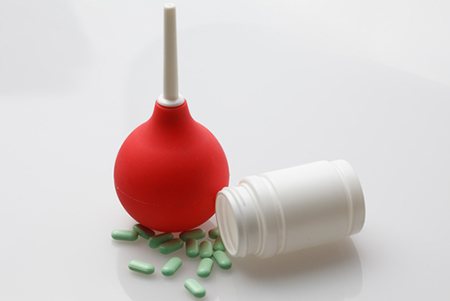
Efferent techniques
These are extracorporeal detoxification methods, which involve treating blood outside the human body in order to improve its composition. There are 3 efferent methods of drug clearance:
Plasmapheresis is the removal of plasma contaminated with toxins and its replacement with saline solution. This procedure is performed infrequently, for example, in cases of severe overdoses. Hemodialysis is a method of cleansing the blood of toxins by filtering it through a special membrane and then introducing it back into the body. Hemosorption is a method that involves filtering blood through a sorbent and then introducing it back into the body.
All of these methods should be used in medical institutions under the supervision of doctors. The choice of method depends on the duration of exposure of the patient to the drug.
Detoxification in a drug treatment clinic
Obviously, after using drugs, the body requires cleansing and detoxification. If a person begins treatment for drug addiction, the first stage of this treatment is complete detoxification. It is carried out in a specialized drug treatment clinic. The drug, as well as all its derivatives, are completely removed from the body, and the normal functioning of all systems and organs of the body is restored. In this way, a person is freed from physical cravings for drugs, which is necessary in order to move on to the next stage of treatment - psychological rehabilitation.
For detoxification, a psychiatrist-narcologist uses saline-based droppers. They restore the water-salt and acid-base balance of the body and relieve dehydration. The dropper increases diuresis, thereby promoting the removal of toxins.
The dropper contains vitamin complexes that help the body recover, glucose to nourish the brain, as well as drugs that restore the functioning of the heart, liver, and kidneys. There are several organs in the human body that are most susceptible to the negative effects of drugs. These are the so-called target organs: brain, liver, kidneys, heart. At the detoxification stage, the doctor takes special care to restore their normal functioning.
Psychological testing for drug addiction

In some cases, our clinic offers developed questionnaires as auxiliary diagnostic methods, with the help of which one can suspect the presence of drug addiction in the subject.
In this case, the person is asked to answer a series of questions. The answer can be short - “yes” or “no”, or contain a more free form of presentation. When taking a psychotest, it is recommended to answer questions quickly, without thinking for a long time about the answer.
The result is assessed by a psychologist. In case of a positive result, the patient must make the necessary decision whether he should seek medical help or not, since the test result is not a diagnosis.
Do not use diagnostic methods in dubious institutions that do not have special permits and licenses in the field of drug addiction. This can damage your health and lead to advanced drug addiction.
Need a test from a narcologist? Want to know how much a test costs? Dial +7 (909) 636-85-38 right now! At the Verimed drug dispensary, all types of testing, diagnosis and treatment are carried out anonymously. All information about the patient does not go beyond the clinic and is not transferable to third parties.
Who is tested for identifying psychoactive substances?
A test to check for the presence of drugs in urine is carried out for various indications. Reasons for undergoing analysis:
- getting a job that requires maximum concentration (pilots, police officers, public transport drivers);
- participation in sports competitions;
- travel abroad;
- admission to the University;
- checking the driver by traffic police officers (if there is a suspicion that the driver driving the vehicle has taken drugs);
- control of treatment for drug addiction.

A single detection of narcotic drugs in urine analysis is a reason for registration with a narcologist. Over a period of time, a person tests his urine for drugs. If there are regular negative indicators, the doctor decides to deregister.



